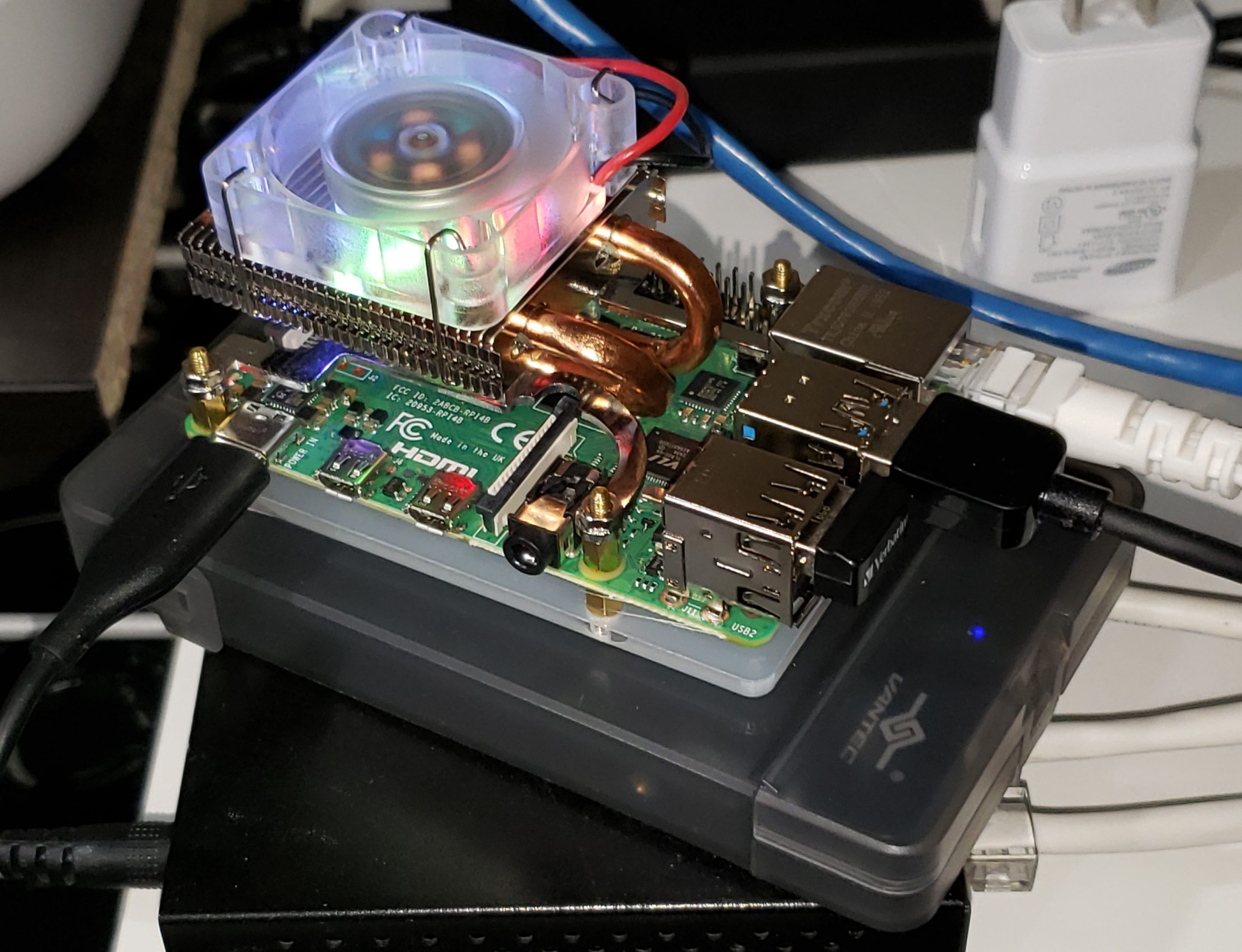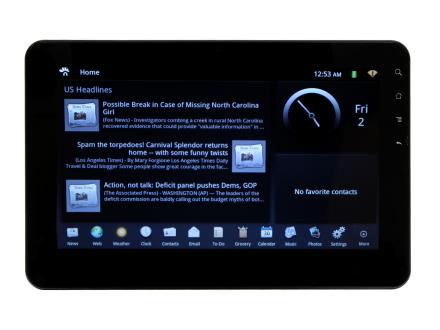ESXi on Raspberry Pi 4

Recently I stumbled across a video that described how to put ESXi 7 on a Raspberry Pi 4. It seemed like a cool thing to try so I went out and looked in my stash of R Pi’s and I didn’t have an 8 Gig version laying around. So I went out to the local computer store and purchased a new R Pi 4 8gig, a cooling fan, and a new hard drive case. Most of these items are the same that I have used for all of my other R Pi projects. So $111 later I had my parts and I began getting the software I would need to build the virtual host. Below is my exact list of parts and software with links.
Parts:
- Raspberry Pi 4B 8Gig
- Vantec USB 3 external hard drive case
- ICE tower cooling fan
- old 2Gig microsd card
- 1G USB flash drive
- SSD hard drive (I had a 1TB one laying around)
Software:
- ESXi 7 arm edition HERE
- Raspberry Pi firmware HERE
- UEFI Firmware HERE
- Rufus HERE
- Linux OS I used Ubuntu 20.04 arm64 HERE
I assembled the device and began setting up things to run on this device. However I did end up building two of them and I changed the hard drives to 120G SSDs that I had purchased for $18 a piece. Once the ESXi hosts are setup it is like every other ESXi host except you can only build ARM based systems. I installed Ubuntu as the base OS for every virtual I build. This allowed me to create almost anything I wanted. I build a PiHole VM on one of the systems and on the other I created a MySQL and web server. I basically created a test environment that allowed me to load a copy of this site on to the Pi basically for testing of changes.
These system ran for months without any real issue until I lost power on day while I was at work and it was long enough that the UPS ran out of battery. This caused one of the systems to crash hard. That system never worked the same afterwards. This was the system that had PiHole on it and I actually used this system on my network. The other system still functioned but I don’t think the UPS it was on ran out of battery. One of these days I will have to rebuild PiHole and continue on. Additionally I plan to make these systems more functional and see if they can hold up over time. This is a pretty low priority and I have to make time to finish this project. I will write another article with more detail and what I built out. Until then there are several videos and article that talk about building a Raspberry Pi ESXi server. These can be great low power servers that can be used to run things at home. I have been running a Docker stack for going on two years with out any real issues so I bet this build will last a long time as well. Give it a shot you may enjoy this.



